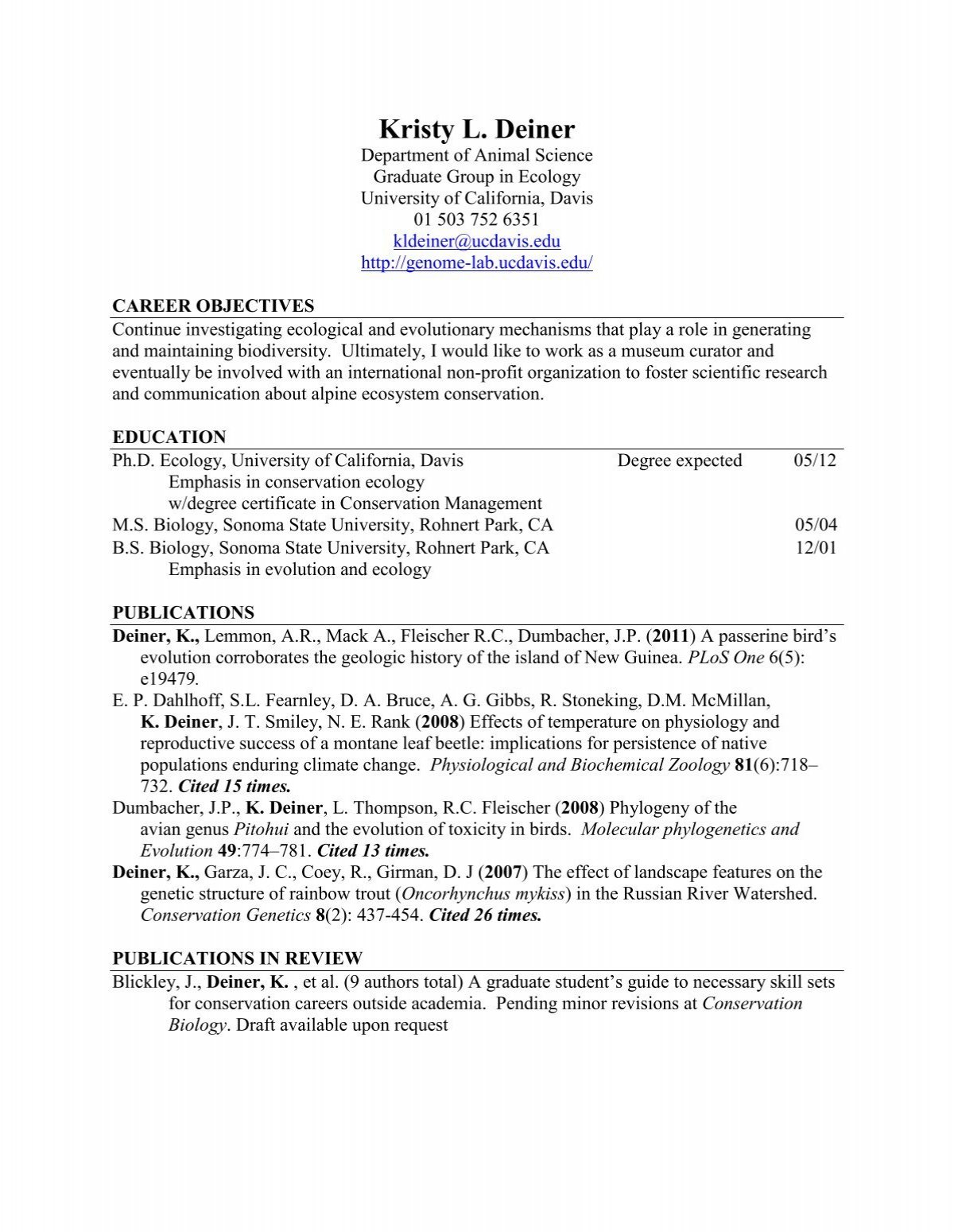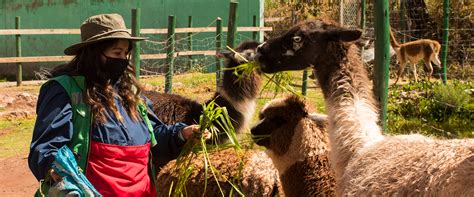Animal Science Careers

The field of animal science is a fascinating and diverse discipline that offers a wide array of career paths for individuals passionate about working with animals. From research and conservation to veterinary medicine and animal behavior, the opportunities are vast and varied. In this comprehensive guide, we will delve into the exciting world of animal science careers, exploring the different paths, the skills required, and the impact these professionals have on our world.
Exploring the Realm of Animal Science Careers

Animal science is an interdisciplinary field that combines biology, zoology, nutrition, and behavioral studies to understand and improve the lives of animals. Whether it’s ensuring the well-being of domestic pets, studying the behavior of wild animals, or contributing to advancements in veterinary medicine, animal scientists play a crucial role in numerous industries.
Let's dive into the various career paths within this captivating field, each offering unique challenges and rewards.
Veterinary Medicine: A Healing Touch for Animals
Veterinary medicine is perhaps the most well-known career path within animal science. Veterinarians are medical professionals dedicated to diagnosing, treating, and preventing diseases and injuries in animals. They provide a range of services, from routine check-ups and vaccinations to complex surgical procedures.
The journey to becoming a veterinarian is rigorous, typically requiring a Doctor of Veterinary Medicine (DVM) degree, which involves extensive coursework in anatomy, physiology, pharmacology, and clinical skills. Following graduation, veterinarians often specialize in specific areas such as small animal care, equine medicine, or wildlife rehabilitation.
The impact of veterinarians extends beyond individual animal health. They play a vital role in public health by controlling the spread of zoonotic diseases and ensuring the safety of our food supply through livestock health management.
Zoology: Unveiling the Secrets of Animal Behavior
Zoologists are scientists who study the behavior, physiology, and evolution of animals in their natural habitats. They observe and analyze animal behavior, track population trends, and investigate the impacts of environmental changes on animal species.
Zoologists often work in research institutions, universities, or conservation organizations. Their research contributes to our understanding of animal behavior, aids in the development of conservation strategies, and informs policy decisions regarding wildlife management and habitat protection.
Specializations within zoology include marine biology, ornithology (the study of birds), mammalogy (the study of mammals), and entomology (the study of insects). Each specialization offers a unique opportunity to delve into the intricate world of animal behavior and contribute to scientific knowledge.
Animal Nutrition and Feed Science: Fueling Animal Health
Animal nutritionists and feed scientists play a critical role in ensuring the health and productivity of livestock and companion animals. They study the nutritional requirements of different animal species and develop diets that optimize growth, reproduction, and overall well-being.
In the field of animal nutrition, professionals may work for feed manufacturers, agricultural businesses, or research institutions. Their work involves analyzing feed ingredients, conducting feeding trials, and developing nutritional guidelines for various animal species.
Animal nutritionists also play a crucial role in addressing global food security by optimizing livestock production systems and reducing the environmental impact of animal agriculture.
Animal Behavior and Training: Understanding Animal Psychology
Animal behaviorists and trainers focus on understanding and modifying animal behavior, whether it’s training service dogs, managing zoo animals, or providing behavioral therapy for pets with behavioral issues.
These professionals use scientific principles and positive reinforcement techniques to train animals, resolve behavioral problems, and enhance the human-animal bond. Animal behaviorists often have a strong background in psychology and ethology, the scientific study of animal behavior.
The work of animal behaviorists and trainers extends beyond individual animal training. They contribute to the development of training protocols for various animal species and provide valuable insights into animal cognition and learning processes.
Conservation Biology: Protecting Our Planet’s Biodiversity
Conservation biologists are at the forefront of efforts to protect and preserve the Earth’s biodiversity. They study endangered species, assess habitat quality, and develop strategies to conserve and restore ecosystems.
Conservation biologists often work in collaboration with government agencies, non-profit organizations, and research institutions. Their work involves conducting field research, analyzing data, and implementing conservation initiatives to protect threatened species and their habitats.
Specializations within conservation biology include wildlife management, ecological restoration, and conservation genetics. Each specialization offers a unique opportunity to contribute to the conservation of our planet's diverse and precious wildlife.
Animal Welfare and Ethics: Ensuring Humane Treatment
Animal welfare professionals are dedicated to promoting the humane treatment of animals and ensuring their well-being. They work in various settings, including animal shelters, farms, and research institutions, to advocate for animal rights and implement ethical practices.
Animal welfare professionals assess the living conditions of animals, investigate cases of animal cruelty, and develop policies and guidelines to improve animal welfare standards. They also educate the public about responsible pet ownership and the importance of ethical treatment of animals.
The field of animal welfare and ethics is constantly evolving, with professionals contributing to the development of animal-friendly legislation and advocating for the ethical use of animals in research and agriculture.
Aquaculture and Fisheries Science: Sustaining Aquatic Resources
Aquaculture and fisheries scientists focus on the cultivation and management of aquatic organisms for food, recreation, and conservation purposes. They study the biology and ecology of fish and other aquatic species, develop sustainable aquaculture practices, and contribute to fisheries management.
Aquaculture scientists work in a range of settings, including hatcheries, fish farms, and research institutions. They play a crucial role in ensuring the sustainability of our seafood supply and promoting the responsible use of aquatic resources.
Specializations within aquaculture and fisheries science include marine aquaculture, freshwater fisheries management, and aquatic ecology. Each specialization offers a unique opportunity to contribute to the sustainable management of our precious aquatic resources.
Skills and Qualifications for a Career in Animal Science

A successful career in animal science requires a unique set of skills and qualifications. Here are some key attributes and educational pathways to consider:
- Scientific Curiosity: A deep interest in biology, zoology, and the natural world is essential for any animal science career. A curious mind and a passion for understanding animal behavior and physiology are fundamental.
- Strong Academic Foundation: Most animal science careers require a bachelor's degree or higher in a relevant field such as animal science, biology, zoology, or veterinary medicine. Graduate-level education is often necessary for advanced positions and research roles.
- Attention to Detail: Animal scientists must be meticulous in their work, whether it's conducting research, diagnosing medical conditions, or analyzing data. Attention to detail is crucial for accurate observations and effective problem-solving.
- Communication Skills: Effective communication is vital for building relationships with colleagues, clients, and the public. Animal scientists often need to convey complex scientific information to diverse audiences, so strong written and verbal communication skills are essential.
- Critical Thinking: The ability to analyze and interpret data, identify patterns, and develop innovative solutions is a hallmark of successful animal scientists. Critical thinking skills are especially valuable in research, conservation, and veterinary medicine.
- Empathy and Compassion: Working with animals requires a deep understanding of their needs and an empathetic approach. Compassion and a genuine love for animals are often what drive individuals to pursue careers in animal science.
The Impact of Animal Science Professionals
Animal science professionals have a profound impact on our world, contributing to the well-being of animals, the advancement of scientific knowledge, and the preservation of our planet’s biodiversity.
From ensuring the health and happiness of our beloved pets to conserving endangered species and managing sustainable food production systems, animal scientists make a difference in countless ways.
Their work improves the lives of animals, enhances our understanding of the natural world, and inspires future generations to pursue careers that make a positive impact on the environment and animal welfare.
Conclusion: A World of Opportunities
The field of animal science offers a myriad of career paths, each with its own unique challenges and rewards. Whether you dream of becoming a veterinarian, a zoologist, an animal nutritionist, or a conservation biologist, the opportunities to make a difference are limitless.
With a strong academic foundation, a passion for animals, and a commitment to ethical practices, you can embark on a fulfilling career that not only benefits animals but also contributes to the betterment of our world.
What are the average salaries for careers in animal science?
+Salaries in animal science careers vary widely depending on the specific field, level of education, and years of experience. Veterinarians, for example, can expect to earn a median salary of around $99,000 per year, while entry-level positions in animal care and behavior may offer more modest salaries. It’s important to research the specific career path you’re interested in to understand the salary expectations.
Are there opportunities for career advancement in animal science?
+Absolutely! Many animal science careers offer excellent opportunities for advancement and specialization. With experience and additional education, you can move into leadership roles, become a specialist in a particular field, or pursue advanced research positions. Career advancement often requires a combination of practical experience, ongoing education, and a dedication to staying current with industry developments.
What are the educational requirements for a career in animal science?
+The educational requirements for animal science careers vary depending on the specific field. For many positions, a bachelor’s degree in animal science, biology, or a related field is the minimum requirement. However, careers in veterinary medicine, research, and advanced conservation roles often require graduate-level education, such as a Doctor of Veterinary Medicine (DVM) degree or a master’s or doctoral degree in a specialized field.


